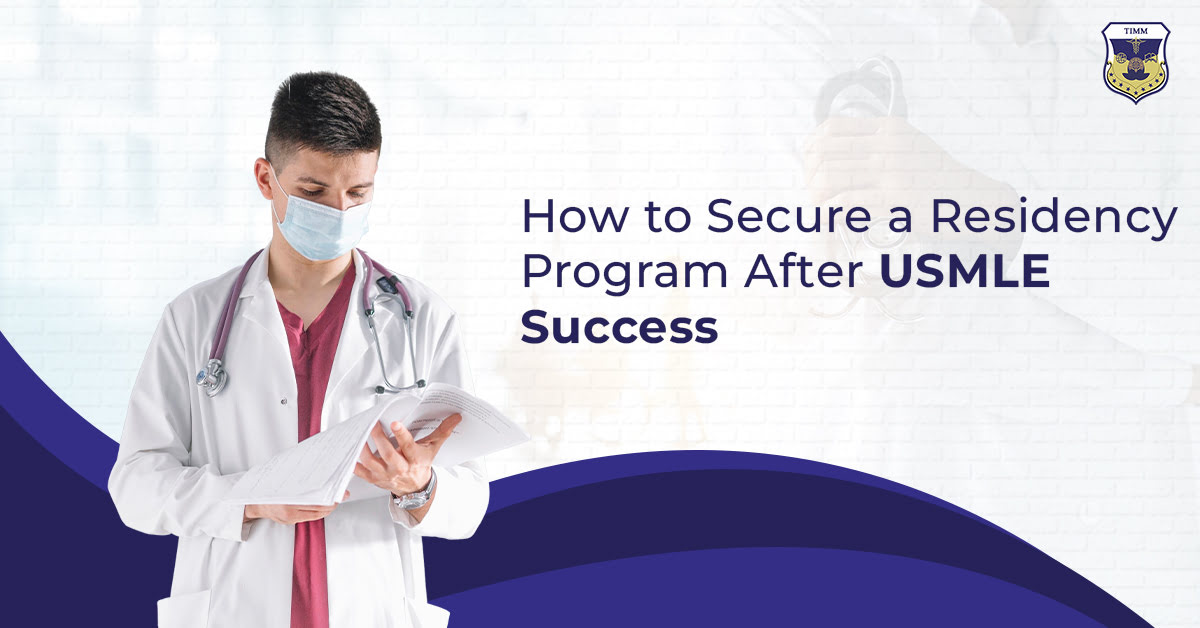Blog Summary
Introduction to Securing a Residency Program
Are you a medical student eager to kickstart your career in the United States? Securing a residency program is a crucial step towards fulfilling your aspirations. This guide will delve into the intricate process of obtaining residency programs in the USA.
Residency programs are significant for medical graduates globally. They offer a distinctive mix of hands-on clinical experience, mentorship, and specialized training. Whether you are interested in surgery, pediatrics, internal medicine, or any other medical specialty, a residency program provides essential training to succeed in your chosen field.
Understanding the intricacies of the application process is paramount in your pursuit of securing a residency program. Each program has unique requirements and selection criteria, necessitating thorough research and meticulous preparation. From academic achievements and clinical experiences to letters of recommendation and personal statements, every aspect of your application plays a pivotal role in shaping your candidacy.
Structure and Components
Comprehending the format and elements of the United States Medical Licencing Examination (USMLE) is essential to successfully obtaining a residency programme following USMLE achievement. This extensive examination series evaluates a doctor’s capacity to use medical knowledge and expertise in patient care. To help you succeed in the medical industry, let’s examine the main ideas and format of the USMLE.
The USMLE is a three-step examination for medical licensure in the United States. Each step assesses different aspects of a physician’s ability, ensuring competence to practice medicine safely and effectively. Let’s break it down:
USMLE Step 1: This phase assesses your comprehension and aptitude for using fundamental science ideas in therapeutic contexts. It’s a comprehensive examination covering anatomy, physiology, pharmacology, and more.
USMLE Step 2 CK (Clinical Knowledge): Step 2 CK assesses your clinical knowledge and skills, focusing on diagnosis, prognosis, and patient care management. It tests your ability to apply medical knowledge to real-world scenarios.
USMLE Step 2 CS (Clinical Skills): Step 2 CS evaluates your ability to communicate effectively with patients, gather medical histories, perform physical examinations, and communicate findings to colleagues.
USMLE Step 3: The final step assesses your ability to apply medical knowledge and understanding of biomedical and clinical science necessary for the unsupervised practice of medicine. It also evaluates your patient management and communication skills.

Participating in US clinical externships provides international medical graduates with invaluable hands-on experience in the American healthcare system.
Preparing for USMLE
Preparing for USMLE success requires strategic planning and diligent effort. Begin by familiarizing yourself with the structure and components of the exam series. Develop a study schedule that allocates sufficient time for each section, focusing on high-yield topics. Utilize various resources, including review books, online question banks, and practice exams, to reinforce your understanding and identify areas for improvement. Collaborate with peers or join study groups to enhance learning through discussion and sharing of insights. Incorporate regular breaks and self-care activities into your study schedule to help you stay focused and avoid burnout.
Effective USMLE preparation involves strategic planning, dedicated study schedules, and utilizing diverse resources to ensure comprehensive exam readiness.
Prioritize active learning methods such as practice questions and concept mapping to reinforce retention. Additionally, consider seeking guidance from mentors or attending USMLE preparatory courses to gain valuable insights and strategies. With dedication, perseverance, and effective study techniques, you can position yourself for success in the USMLE exams and pave the way for future achievements in your medical career.
Importance of USMLE Scores in Residency Matching
The significance of USMLE scores in residency matching cannot be overstated. These scores serve as a crucial benchmark for residency program directors evaluating applicants. A strong performance in the USMLE demonstrates your competence and readiness for residency training. It showcases your ability to apply medical knowledge and skills to patient care scenarios effectively.
- Residency programs often use USMLE scores as a primary screening tool to filter through applicants.
- High USMLE scores distinguish you from other candidates, showcasing your academic prowess and dedication to your medical career.
- These scores provide objective evidence of your preparedness for the rigorous demands of residency training.
- USMLE scores significantly influence your competitiveness for various residency programs and specialities.
- Different programs have distinct score requirements and preferences, with some emphasizing specific USMLE steps.
- Excelling in the USMLE increases your chances of matching into more competitive residency programs.
- Achieving high USMLE scores can open doors to your desired speciality.
- USMLE scores serve as a standardized measure of your medical knowledge and skills.
- They help residency directors assess your suitability for their programs.
- Investing time and effort into achieving high USMLE scores significantly enhances your prospects of securing a residency position.
After USMLE Success: Next Step
After conquering the USMLE, the following steps are crucial for advancing towards your residency goals. Firstly, research residency programs meticulously to identify those that align with your career aspirations. Next, familiarize yourself with the application process, which typically involves submitting documents through platforms like ERAS (Electronic Residency Application Service). Craft a compelling personal statement highlighting your achievements, goals, and suitability for the program.

Obtain strong letters of recommendation from mentors or supervisors who can attest to your capabilities. Finally, prepare rigorously for residency interviews, showcasing your passion, skills, and suitability for the program. With careful planning and preparation, you can navigate these next steps successfully and secure a coveted residency position.
Conclusion
Securing a residency program in the USA post-USMLE success requires dedication, meticulous preparation, and strategic planning. From understanding the intricacies of the USMLE structure to excelling in the exams, each step plays a pivotal role in shaping your medical career. The importance of USMLE scores in residency matching cannot be overstated, serving as a crucial benchmark for program directors.
However, beyond scores, thorough research, thoughtful application, and compelling interview preparation are essential for success. By navigating these steps with diligence and determination, aspiring physicians can pave the way for a rewarding and fulfilling medical career in the United States.


